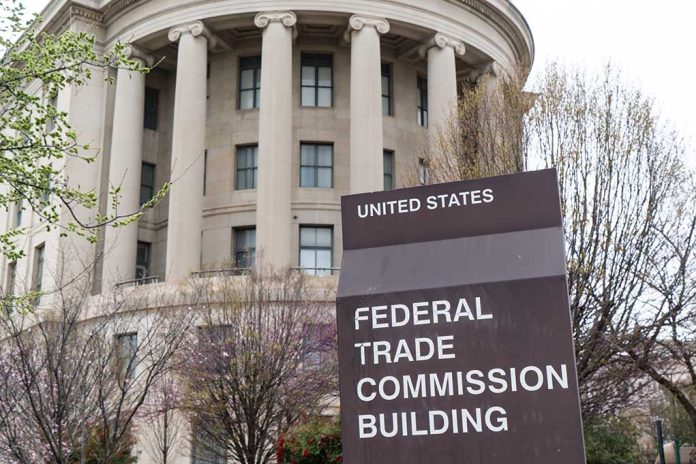
The Federal Trade Commission has issued warnings to 37 contact lens prescribers for potentially violating consumer rights, threatening penalties up to $53,088 per violation for those who fail to comply with regulations.
Key Takeaways
- The FTC sent 37 warning letters to contact lens prescribers for possible violations of the Contact Lens Rule, which requires providing patients with their prescriptions after fittings.
- Prescribers cannot charge additional fees for releasing prescriptions or require patients to buy contacts or eyeglasses directly from them.
- Violations may result in legal action including civil penalties up to $53,088 per violation.
- Despite longstanding rules, consumers continue to report difficulties obtaining their prescriptions, prompting the FTC’s enforcement action.
FTC Crackdown on Contact Lens Rule Violations
The Federal Trade Commission has taken decisive action against potential violations of consumer rights in the vision care industry. Based on numerous consumer complaints, the agency issued 37 warning letters to contact lens prescribers who may have failed to provide patients with copies of their contact lens prescriptions after eye exams. This requirement, mandated under the Contact Lens Rule, ensures consumers can shop around for the best prices rather than being forced to purchase from their eye care provider. The move represents another example of government regulation that, while potentially burdensome to businesses, aims to protect consumer choice in the marketplace,according to The Federal Trade Commission.
In addition to the 37 warning letters, the FTC also sent a letter to Spectrum Vision Partners, LLC, closing an investigation but warning them to comply with both the Eyeglass Rule and Contact Lens Rule going forward. Spectrum had been investigated for charging additional fees for releasing prescriptions, which violates regulations if such fees are only charged to patients who request their prescriptions rather than purchasing directly from the provider. While the investigation was closed without formal action, the company remains under scrutiny to ensure future compliance.
Consumer Rights and Provider Obligations
The Contact Lens Rule contains several key provisions that protect consumers from being taken advantage of by eye care providers. Prescribers must provide patients with a copy of their prescription immediately after a contact lens fitting, without requiring any additional fees or signed waivers. Similarly, the Eyeglass Rule requires prescribers to give patients their eyeglass prescription after a refractive eye exam. These regulations explicitly prohibit eye care professionals from forcing patients to purchase contacts or eyeglasses directly from them, which creates competition in the marketplace and typically results in lower prices for consumers.
Despite these clear rules being in place for years, the FTC continues to receive complaints from consumers who struggle to obtain their prescriptions. Many patients report being pressured to purchase from their eye doctor, with some providers attempting to charge extra fees for releasing prescriptions or creating other barriers. The FTC’s enforcement action signals that President Trump’s administration remains committed to protecting consumer rights and promoting fair competition, even in specialized markets like vision care that many Americans depend on for their daily lives, Stated President Trump.
Potential Consequences for Non-Compliance
The FTC’s warning letters make it clear that violations of these rules can result in serious consequences. While the letters themselves are not formal determinations of rule violations, they put providers on notice that continued non-compliance could lead to legal action. This includes administrative subpoenas and civil penalties that can reach up to $53,088 per violation—a substantial financial risk for eye care practices that fail to follow the rules. The agency has emphasized that prescriptions must be provided immediately after an exam, even if the exam was free or conducted for non-prescriptive purposes Stated FTC.
For consumers who believe their rights have been violated, the FTC encourages reporting these incidents through their website at ReportFraud.ftc.gov. The agency provides extensive guidance for both prescribers seeking to comply with regulations and consumers wanting to understand their rights. This enforcement action demonstrates how government agencies under the Trump administration are working to ensure that businesses follow the rules while protecting American consumers from unfair practices in the healthcare marketplace.




